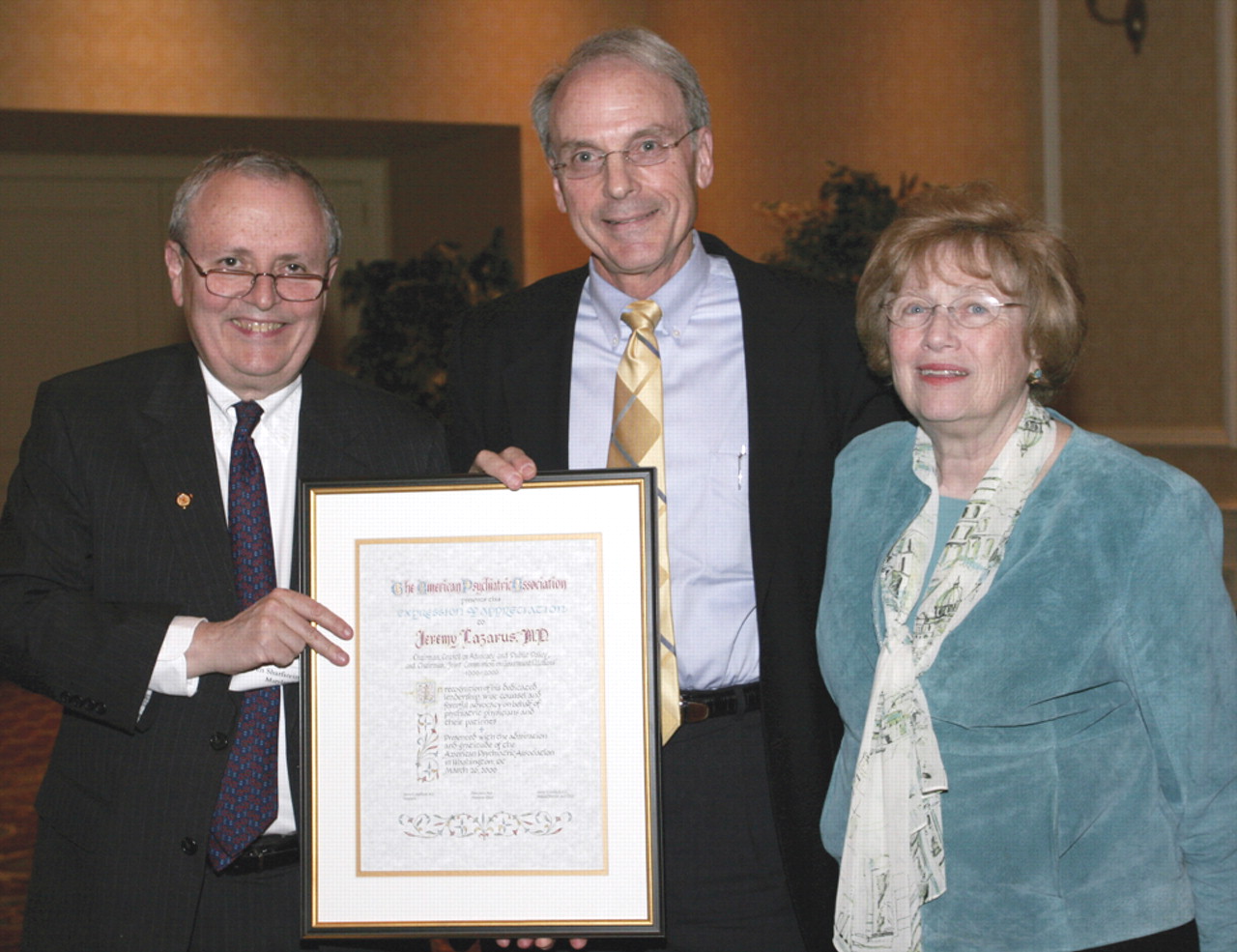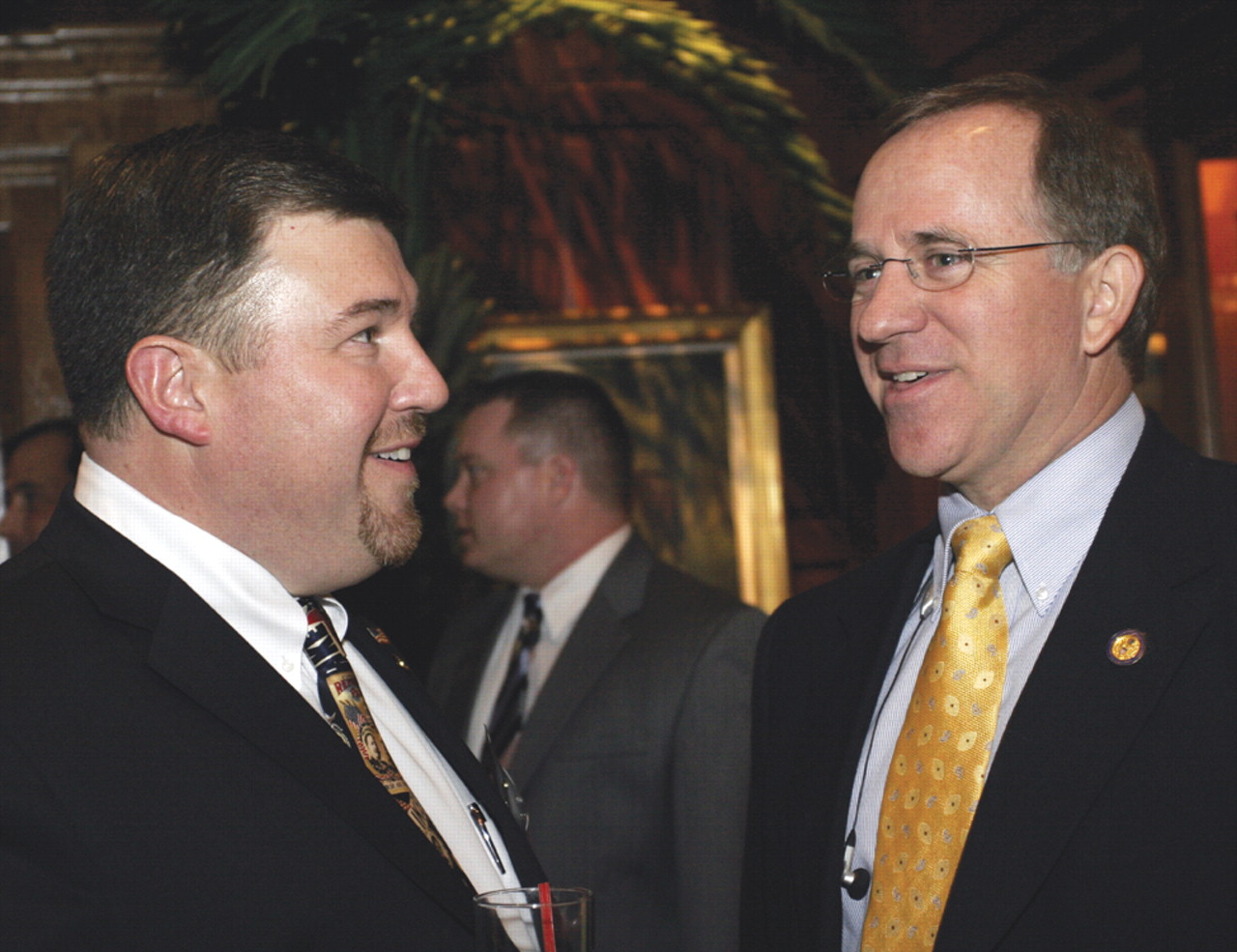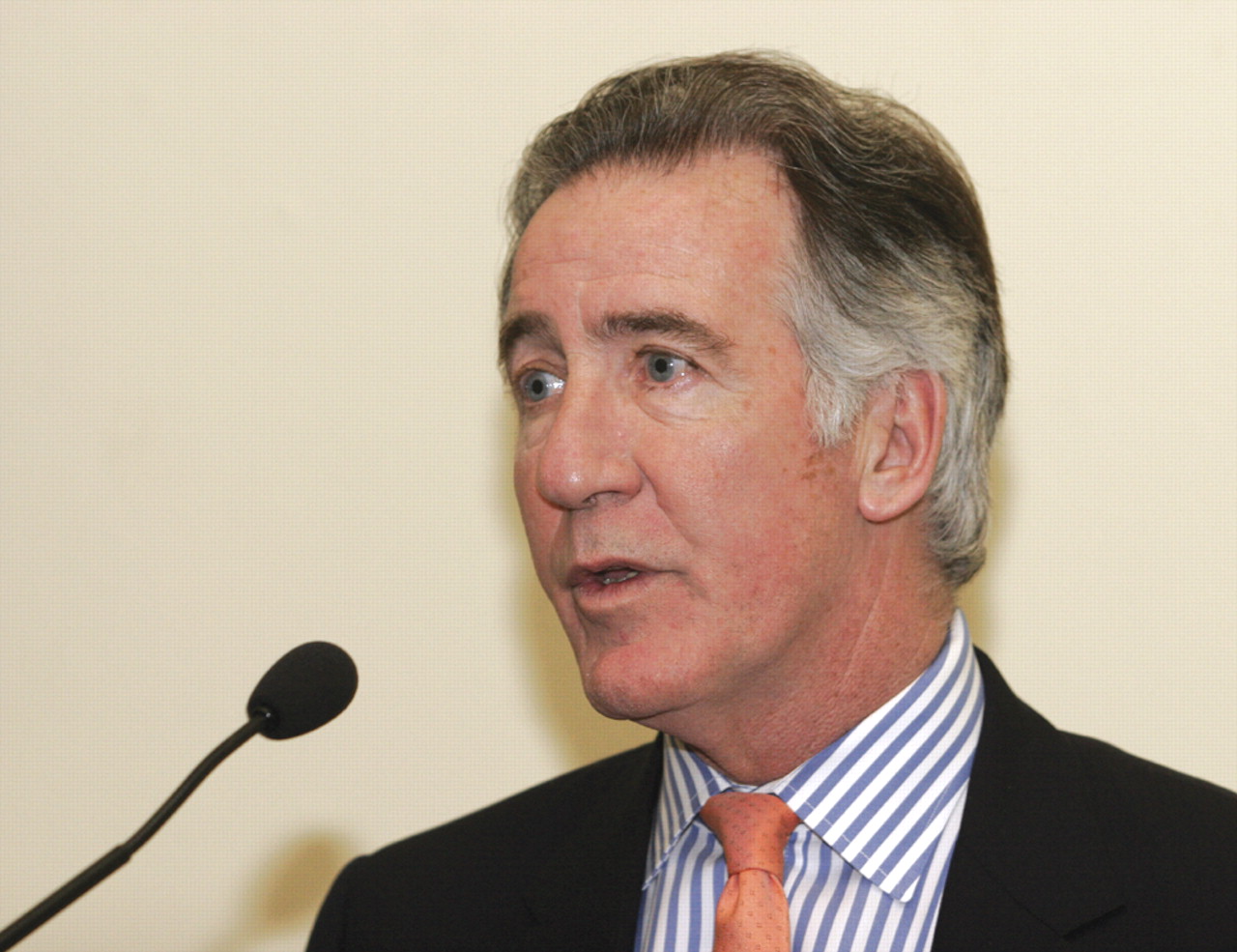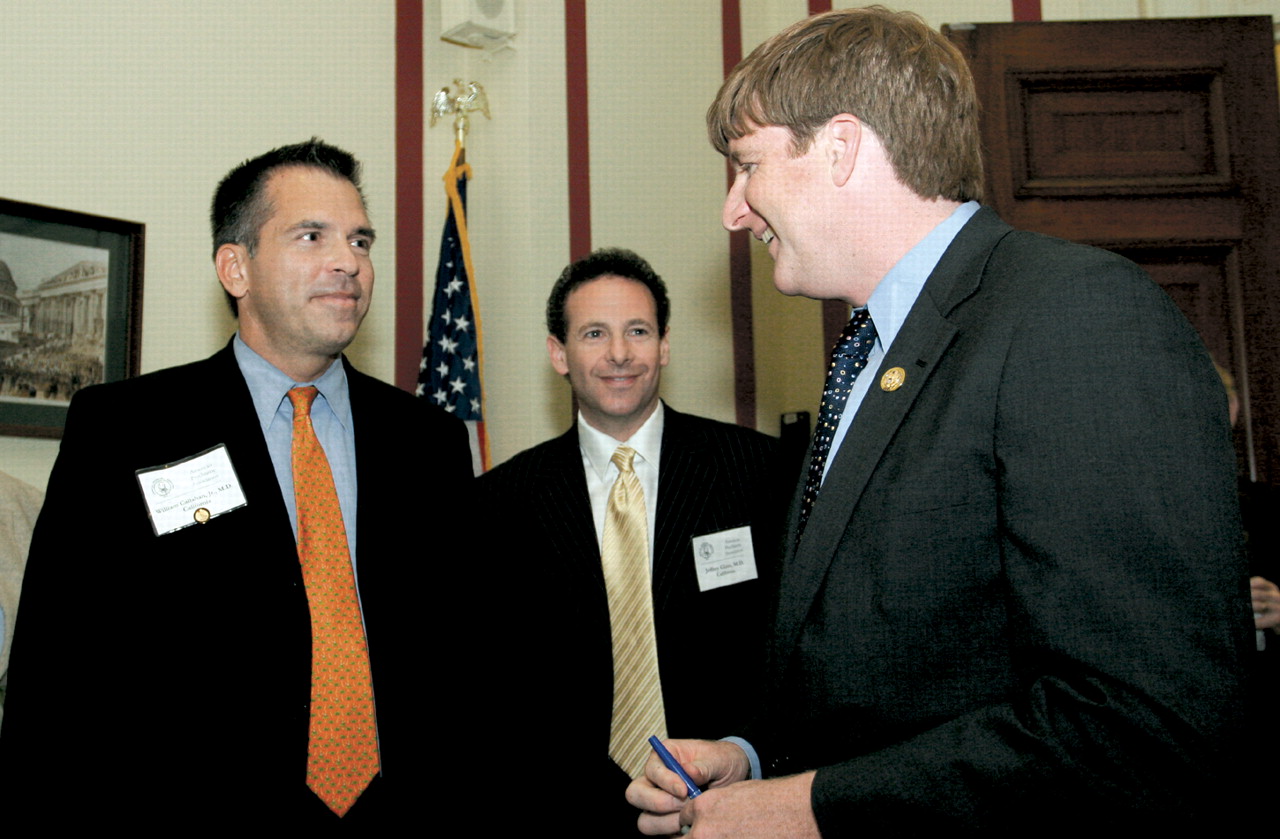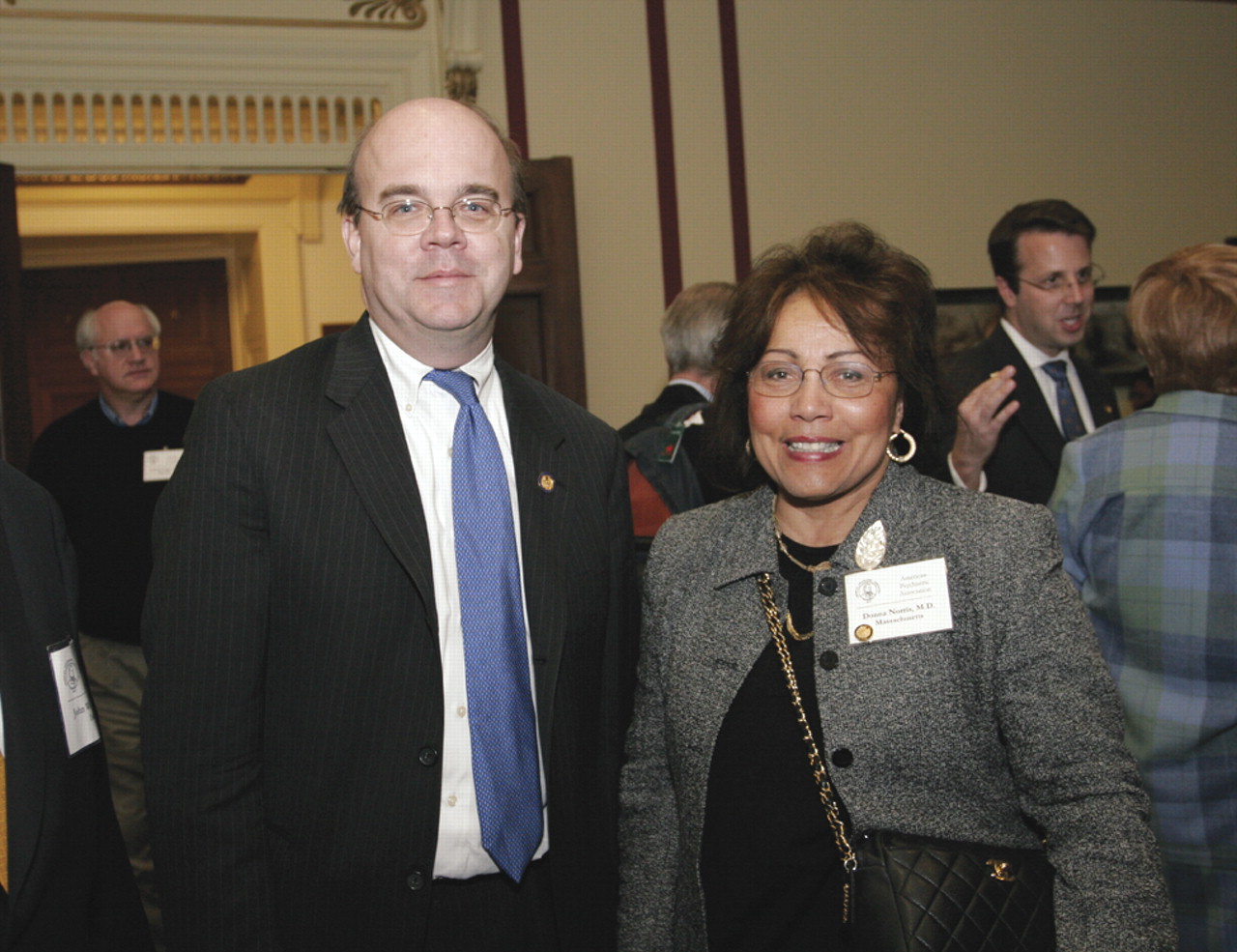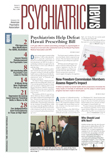Psychiatrists from across the United States descended on Washington, D.C., to meet their congressional representatives and get updates on the state of federal mental health care policy during APA's 2006 Advocacy Day activities in late March.
The event, which drew 92 APA members from 43 states, included an address by Center for Medicare and Medicaid Services Administrator Mark McClellan, M.D., Ph.D., in which he acknowledged that the Medicare Part D benefit “wasn't perfect,” but said his agency is working hard to improve it.
McClellan said the new program covers mental illness medications much more comprehensively and uniformly than past reliance on disparate state Medicaid programs. Federal administrators, he said, are working to improve copay and coverage information for beneficiaries. He also noted that the program did not force those seeking medications for mental health to use substitute drugs, which could compromise treatment.
McClellan also touted a controversial voluntary physician-reporting program, which he said allows Medicare to better support and learn from the best physicians (Psychiatric News, April 7).
“Currently, if you put in the extra effort so a patient has a better outcome, we pay you less, so it is hard for you to take the steps that will improve your own system for patients,” McClellan said.
Medicare Part D was a common subject of discussion for psychiatrists who lobbied members of Congress and spoke with congressional staff members.
Leigh Anne White, M.D., a Michigan psychiatrist, visited two House and two Senate offices of lawmakers from her state during her second year of lobbying Congress, during which she urged federal parity legislation and improved privacy protections for patient information.
“Coming to Congress is an absolute priority,” she said.“ If we don't take the time to come here, who will?”
Iowa psychiatrist Judith Crossett, M.D., used her visits to four congressional offices to educate legislators and their staffs that psychiatry can have personal and monetary benefits for society. She pointed out that psychiatric treatment can help those with dementia and delay the need for nursing home care, for example, which can save families and taxpayers large amounts of money.
Members of Congress praised the psychiatrists for taking the time to meet with legislators on mental health issues, even when it is not always clear what effect lobbying has on changing policy.
“It is tempting to let someone else do it, but you need to use your links to decision makers across the country,” said Rep. Richard Neal (D-Mass.). “The time of stating your goals as physicians and their being embraced [by members of Congress] is past because other groups have gotten very good at lobbying.”
Rep. Bob Filner (D-Calif.) told the psychiatrists that their stories of personal experiences with flawed laws or effective policies that are under threat will affect legislation Congress considers.
Congress needs to hear from psychiatrists, Filner said, because the average person is still not comfortable talking about mental illness. He urged their support of his planned legislation to raise Medicare's reimbursement for mental health care to the same level as it is for other types of medical care.
Rep. Steve Buyer (R-Ind.), chair of the House Veterans Affairs Committee, said he needs APA members' support to pass a measure to exempt antipsychotic and antidepressant medications from a Medicaid requirement designed to steer patients to the least-expensive treatment options. His effort to pass the provision last year was derided by some in the media as a corporate giveaway to drug companies and defeated.
“When I go back into this legislative process, I can't go back in alone. I need your support,” Buyer said to APA members at a reception.
Rep. Patrick Kennedy (D-R.I.), a leading supporter of more effective mental health care policy, said psychiatrists need to educate their federal representatives on parity's true costs and benefits.
One piece of evidence he encouraged APA members to share is a recent Government Accountability Office study that found little increase in federal retired employee health care costs when mental health parity was added.
In addition, Michael Zamore, a policy advisor to Kennedy, urged APA members to contact their senators and representatives to let them know of their opposition to ending the growth of research funds for the National Institutes of Health (NIH), as called for in President Bush's 2007 budget.
He also called on APA members to relate stories that describe how policies that allow long juvenile treatment waiting lists impact the lives of their constituents. “We need your help cajoling and shaming those who need to know how much needs to be done,” Zamore said.
Rep. Rush Holt (D-N.J.) stated that he will work to increase the NIH research budget. He told the psychiatrists that their efforts to establish relationships with congressional staff members is vital because it keeps both parties informed. And he urged other psychiatrists to participate in the future. “Doing this once makes you want to do it again,” he said.
Information about APA's federal advocacy efforts is posted at<www.psych.org/members/advocacy_policy/index.cfm>.▪
